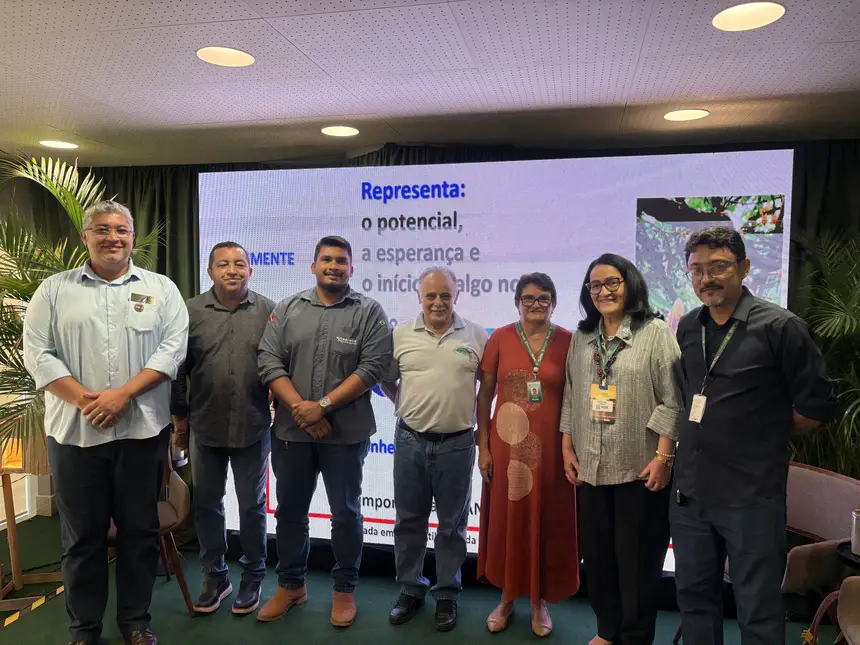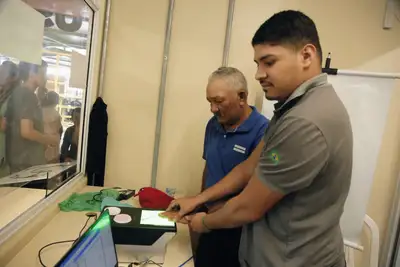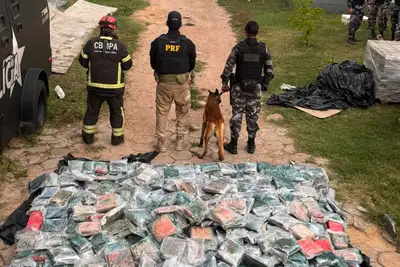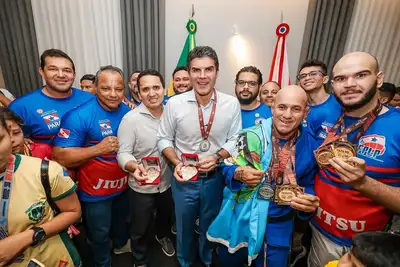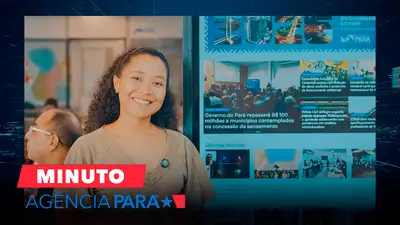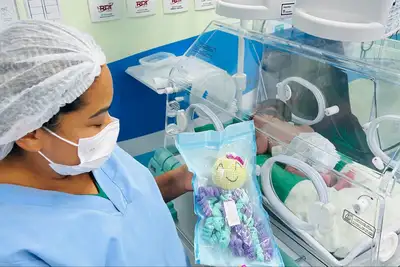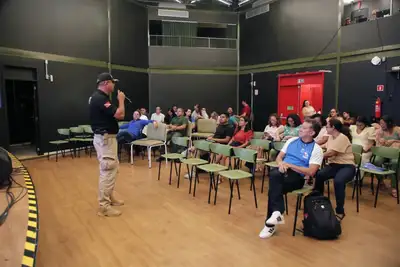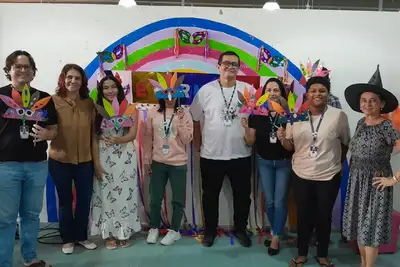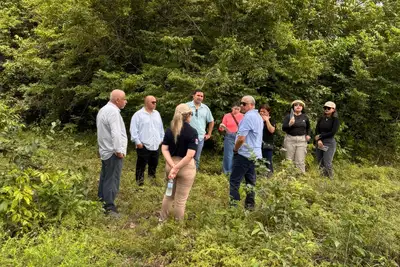From Seed to SAF: Ideflor-Bio Presents Results of Prosaf in Forest Restoration
At COP 30 in Belém, the meeting highlighted concrete and strategic results of the Agroforestry Systems Program (Prosaf) alongside family farming.
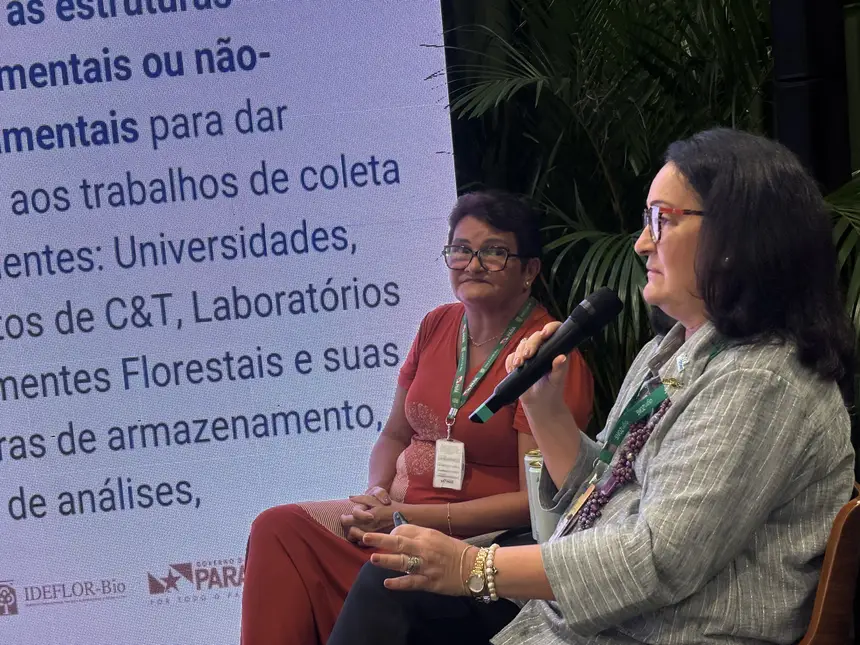
The Institute for Forest Development and Biodiversity (Ideflor-Bio) gathered specialists, researchers, and rural producers on Thursday (20) at the Pará Pavilion in the Green Zone of COP30 (30th World Climate Change Conference) to present the panel "From Seed to Agroforestry Systems (SAF): The Prosaf Experience in Environmental Recovery and Forest Restoration in the State of Pará."
The meeting was moderated by the Forest Technology Manager, Cleberson Salomão, and the Forest Management, Silviculture, and Extractivism Manager, Estevam Coqueiro, and highlighted the concrete results of the Agroforestry Systems Program and its strategic role in the restoration of degraded areas and the appreciation of family farmers.
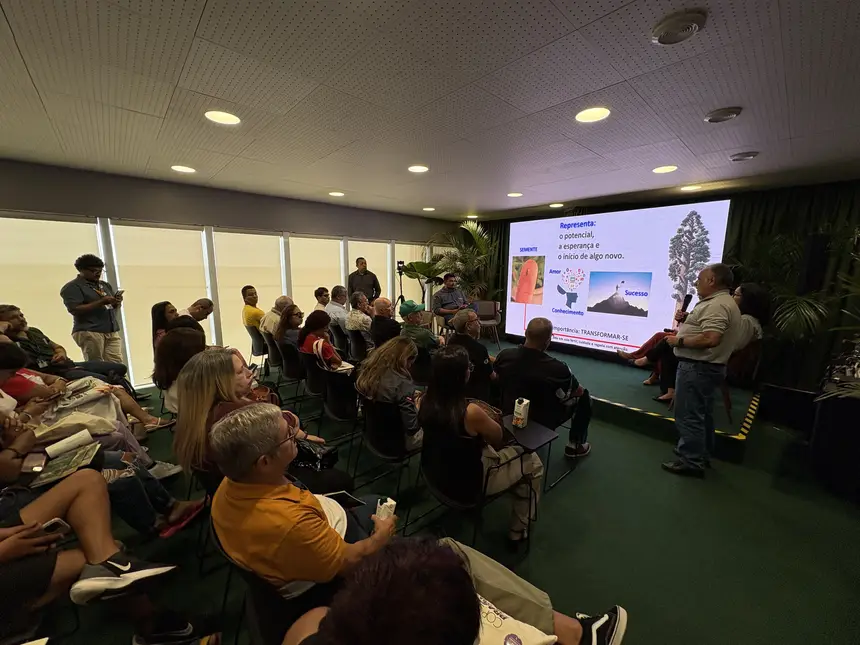
The program featured four guests representing different stages of the forest production chain: the Production and Support Manager for Forest Productive Arrangements at Ideflor-Bio, Laura Dias; Embrapa researcher, Dr. Noemi Viana; farmer and seed producer, Eliakim Rodrigues; and agronomist from the Executive Commission of the Cocoa Crop Plan (Ceplac), Dr. Fernando Mendes. The diversity of perspectives allowed for the presentation of Prosaf from the beginning of the cycle - the forest seed - to the consolidation of Agroforestry Systems (SAFs) as a socioeconomic and environmental strategy in the Pará territory.
Opening the panel, Laura Dias emphasized the importance of presenting Prosaf in the context of COP30. "It was gratifying to showcase what we do and build with farmers. We had key partners: Noemi, highlighting the importance of seeds; Eliakim, demonstrating the success of those who started with Prosaf; and Dr. Fernando concluding with results within a company. This all closed a very significant moment for Ideflor-Bio within agroforestry systems," she stated.
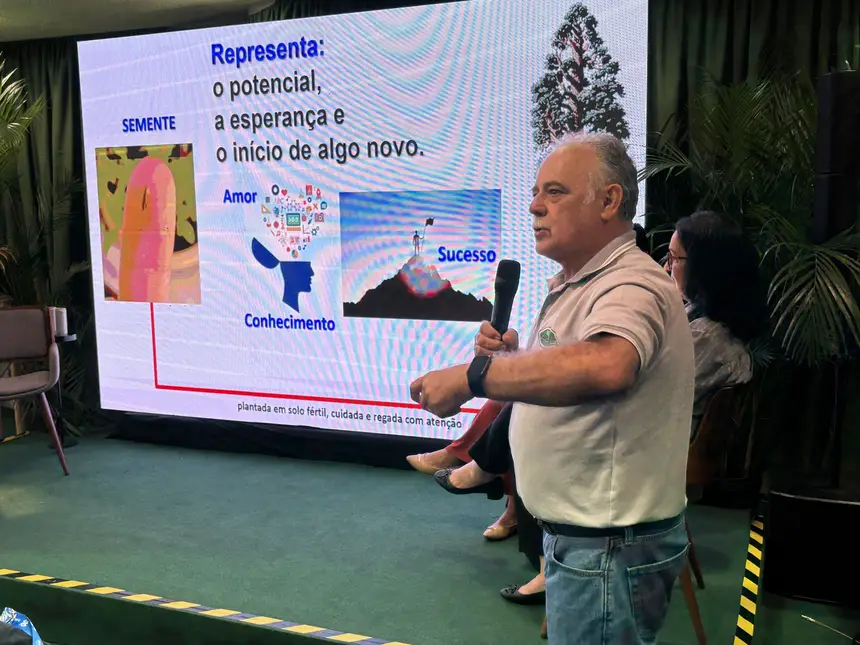
Challenges and Opportunities
Next, researcher Noemi Viana explained the challenges and opportunities related to forest seeds, an essential stage for producing quality seedlings. She emphasized that Amazonian biodiversity is a powerful asset for SAFs. "Our contribution was to show the possibilities of integrating the diversity of Amazonian seeds into agroforestry systems. We discussed the challenges of working with forest seeds, their different forms and sizes, so that we can produce quality seedlings and ensure the success of SAFs," she stated.
The practical experience came from Eliakim Rodrigues, a farmer who transformed Prosaf into a productive and environmental restoration opportunity. He shared his journey from the implementation of the first hectare of SAF. "I was a direct beneficiary of Prosaf. We started with pepper, then came bananas, and today açaí, which is our main income. It is a system that restores degraded areas and is productive. This keeps the producer in the field and makes these initiatives increasingly interesting for the entire state," he explained. For him, participating in the panel was "an honor."
Valuing the Forest
Concluding the contributions, researcher Fernando Mendes from Ceplac reinforced the role of SAFs in valuing standing forests and supporting rural producers. "Our mission was to reveal how the path is made from seed collection to planting in the ground. We showed the joint effort to ensure that the producer is included and protected. I addressed agroforestry systems with cocoa, from the origin of the seed to the quality protocol. Our goal was to bring knowledge, perspective, and hope for everything to work out in the end," he highlighted.
The panel reinforced that Prosaf is one of the main tools for forest restoration by the Government of Pará, connecting research, technology, rural extension, and agricultural practice. More than recovering degraded areas, the program creates sustainable economic alternatives, strengthens rural communities, and promotes the transition to productive models compatible with the conservation of the Amazon.


